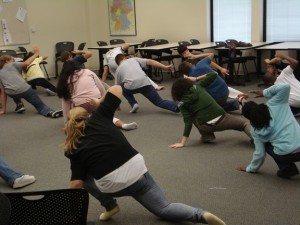The “Mind the Gaps†study, by ACT, found there is a correlation between a student doing well in core classes during high school and the student’s likeliness of attending college or staying in college for more than a year. Students from low-income families and racial and ethnic minority groups who apply for college have a lower success rate than white students from wealthier families. Research found a 14 percentage-point gap between white students and minority students in the rate they were enrolled in college a year after graduating from high school. When the students all hit the ACT college readiness benchmarks, there was only a 6 percentage-point gap.
ACT defines a student to be college-ready if they have had four years of English, and at least three years of math, science, and social studies. Currently, less than one-fourth of students will meet those requirements in all four areas. Cynthia B. Schmeiser, the president of the ACT’s education division said, “Ensuring kids are prepared for college by the time they leave high school is the single most important thing we can do to improve college-completion rates.â€
Article: High School Rigor Narrows College-Success Gap
Students from some racial- and ethnic-minority groups and those from low-income families enroll in college and succeed there at lower rates than their white, wealthier peers. But a new study suggests that if teenagers are adequately prepared for college during high school, those gaps close substantially.
Read the full article at: edweek.org


















